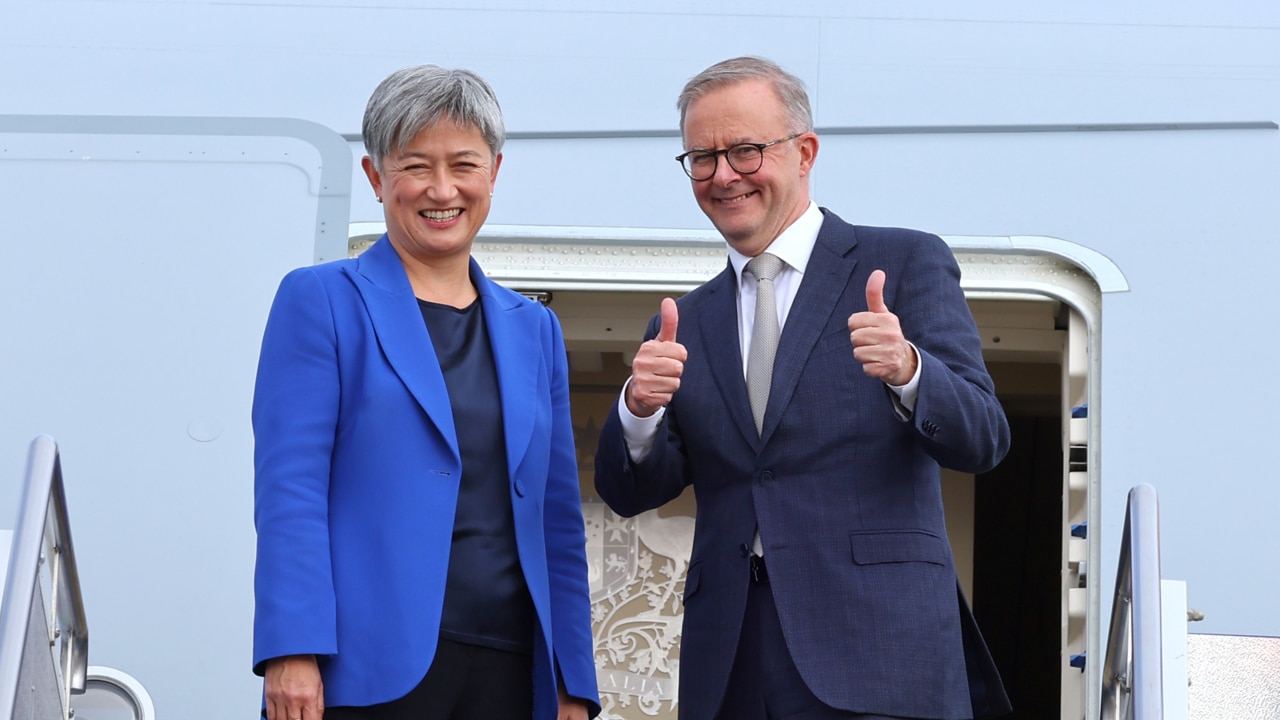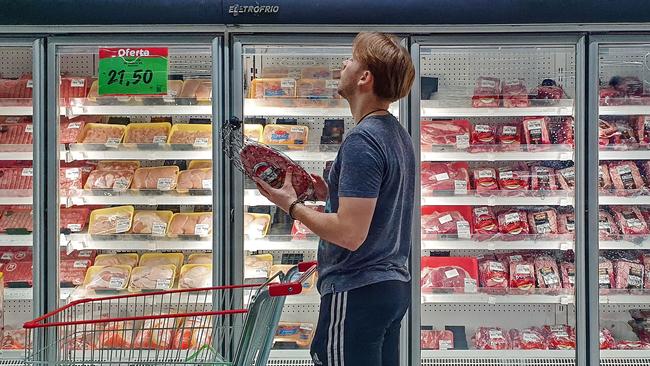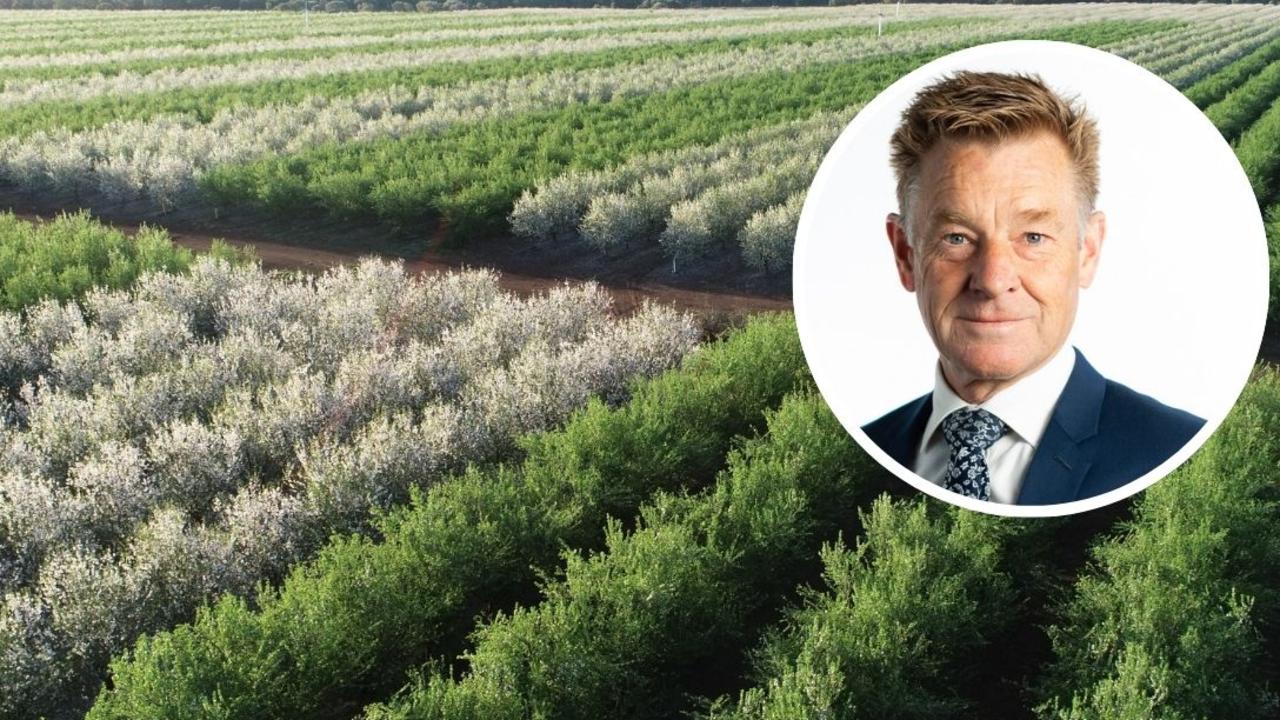China trade: Why Aussie beef, wine and lobster may soon be back on Chinese plates
Australian beef, wine and lobster producers are waiting for China’s next move, and here’s what to expect.

It was fitting, in these post-Covid times, that the first meeting between an Australian trade minister and their Chinese counterpart in four years should occur virtually.
Seated at a grand wooden conference table in one of Parliament House’s many meeting rooms, Trade Minister Don Farrell exchanged pleasantries with the wide-screen TV beaming the face of China’s Minister for Commerce, Wang Wentao; a literal reminder of the distance in the two nations’ relationship, despite the new-found civility.
The February 6 meeting was the fifth between members of the Australian and Chinese governments since Prime Minister Anthony Albanese met Chinese President Xi Jinping in November last year. Speedy progress for two countries that have barely spoken since 2020 – but not speedy enough, perhaps, if you’re an Australian barley grower or wine producer.

Australian agriculture has been one of the sectors hardest hit by China’s trade war, sparked after Australia called for a global investigation into the origins of the Covid-19 pandemic.
China targeted Australia’s $14 billion in ag exports in retaliation, starting with crippling tariffs on barley in May 2020 and continuing with hits on wine, beef, timber, lobster, cotton and coal.
Throughout the politicking, Aussie farmers and Chinese businesses alike have arguably kept a close eye on when the once win-win relationship might start to mend.
“The average Chinese consumer still has a fond appreciation for Australian product if they are in a position to afford it,” Matt Dalgleish, director of market analysts Episode 3, says. “I think once things normalise in terms of the political barriers, there’s a natural force at play where Chinese consumers want product from Australia, and Australian exporters and producers are happy to send them, because they do pay some of the best prices.
“It’s a no-brainer that’s where it will revert back to.”
There are positive signs things are moving in the right direction. The first shipments of Australian coal to China in two years have begun. A recent export application for rock lobster was not rejected by Beijing, suggesting that $700 million trade could be about to start up again. Cotton exports have quietly started up again after plummeting from 81,210 tonnes at the start of 2020 to 37,312 tonnes in 2021.
Industry groups and businesses are also taking diplomacy into their own hands. National Farmers’ Federation president Fiona Simson has confirmed she will be visiting China this year, while The Australian reported luxury wine brand Penfolds’ managing director, Tom King, held talks with the China Alcoholic Drinks Association – the very organisation that asked Chinese officials to launch anti-dumping investigations on Australian wine, leading to the crippling tariffs of 116 to 218 per cent.
Meanwhile, a new wave of Chinese investment in Australian farmland is flowing, after a China-based textile company snapped up the almost 15,000-hectare Gundaline Station in NSW’s Riverina, in a $120 million deal.


Then there are global market forces, well beyond anyone’s control. Brazil has recently suspended all beef exports to China after finding a positive case of bovine spongiform encephalopathy, or mad cow disease, among its herd. With China’s biggest beef exporter knocked out of the game, the 10 Australian abattoirs shut out from the market for the past few years could find themselves with an open door.
“It might be a bit of a reminder that Australia’s back and firing again … and an added reminder we’re a more reputable and safer trading partner,” Dalgleish says.
Unofficial bans on commodities such as rock lobster or beef could quietly be removed fairly quickly if and when required. Lifting sanctions on the $1.3 billion wine trade, or on the billion-dollar barley trade will take more than a handshake, however, given both commodities are the subject of World Trade Organisation disputes. Farrell has consistently stated his preference to “resolve these issues with discussion and dialogue”, leaving open the possibility of an informal resolution.
Director of the Australia-China Relations Institute at University of Technology Sydney, James Laurenceson says those statements are encouraging, as is the speed with which diplomacy has progressed, which he attributed to two key factors.
“I think Beijing realised the strategy was backfiring – not just was it not yielding results, but it was actually hurting China,” he says. “Not just in outsourcing goods, but its reputation was hurting.”


The other reason was the change of federal government. “Albanese provided that off-ramp (from tensions), and a return to calm and professional dialogue,” Laurenceson says.
“There is a fundamental tension that is going to remain in the relationship, and that’s the role Canberra would like the US to play in the region. We want the US to be more prominent than China.”
Laurenceson does not think that tension will derail the warming ties but it will require “careful diplomacy”.
There’s also the fact China’s strategy just didn’t pay off. Despite the angst, two-way trade between the nations actually increased by 6.3 per cent in 2021, to $267 billion. Sanction-affected commodities lost $5.4 billion in 2020, but found new markets to the tune of $4.4 billion, according to government figures (the exceptions being the highly specialised wine and timber markets).
“I think Beijing was surprised by how little it did affect Australia,” Laurenceson says.
“We did find other markets, though you’ve got to be careful in what drove that … the global markets just redirected it elsewhere.” Dalgleish broadly agrees, noting that basic law of supply and demand, and the drive to get the best price for quality goods, will likely take over once trade barriers are removed. “At the end of the day the trade will act according to their best outcomes. For Australia, for a lot of commodities, that means China,” he says.
How quickly the wheels of diplomacy turn, however, is anyone’s guess. Farrell is due to visit China “in the coming months” at the invitation of Wang. “I believe your next trip to China will give you a different impression,” the Chinese Minister said during their meeting.
The world will be watching.




